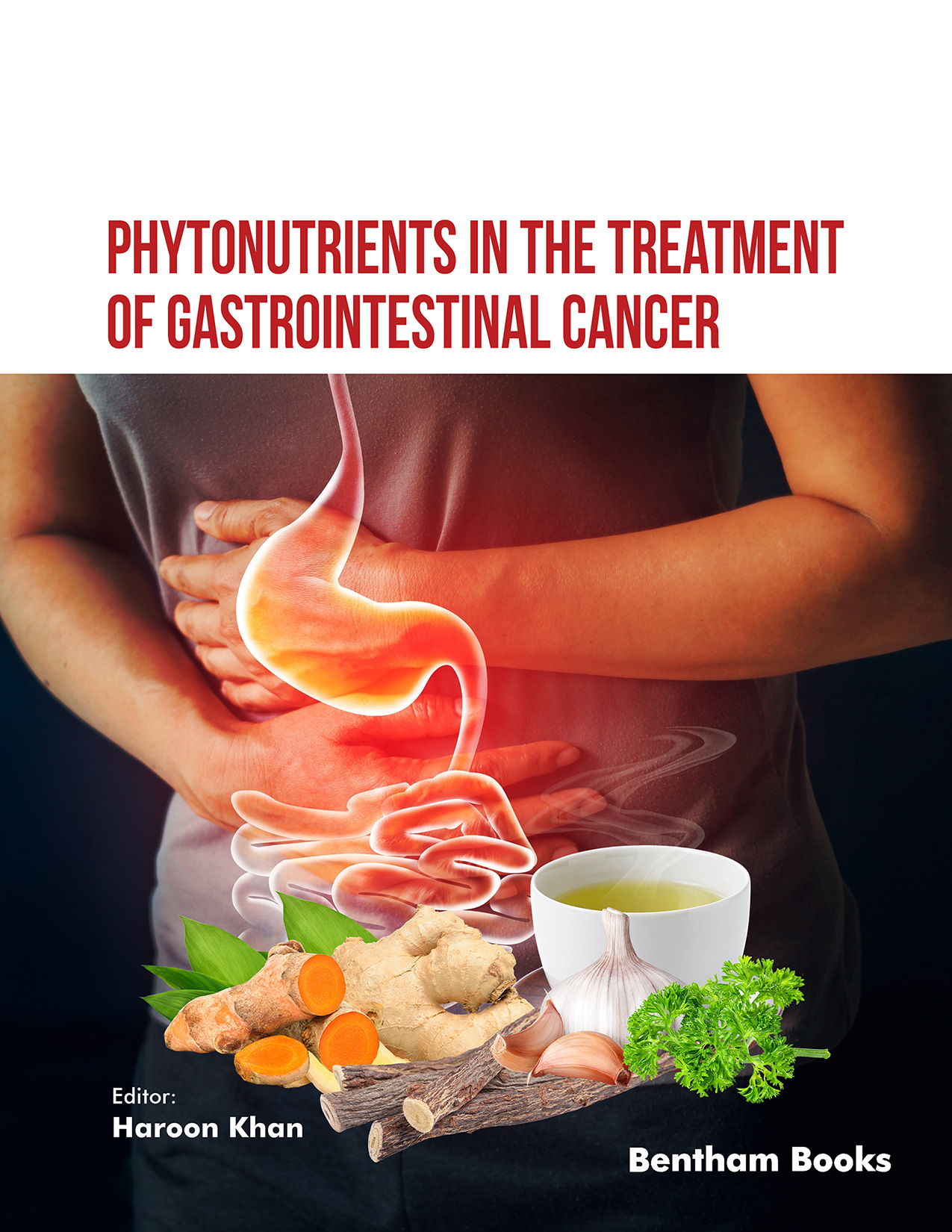Introduction
Gastrointestinal cancer is one of the most prevalent causes of cancer-related deaths in the world. Recent research demonstrates that phytochemicals are critical in preventing and managing gastrointestinal cancer. The increased intake of phytochemicals could reduce the risk of cancer by inhibiting cancer cell proliferation, inducing apoptosis and autophagy, and suppressing angiogenesis as well as cancer cell metastasis. These mechanisms are also known to counter Helicobacter pylori infection and modulate gut microbiota. There is preliminary data suggesting that daily supplementation with high doses of certain vitamins combined with conventional therapeutic agents may enhance their growth inhibitory effects on tumor cells and protect normal tissues against some of their toxic effects.
This book attempts to fill gaps on the role of phytonutrients in the treatment of cancer in the gastrointestinal tract (GIT). It discusses the action of individual vitamins on cellular and molecular parameters and describes how vitamins inhibit protein kinase C activity, increase the production of certain growth factors, and modulate the expression of a number of oncogenes.
The book is divided into 2 parts. The first part summarizes the pathophysiology of GIT cancers and introduces readers to anticancer phytonutrients. A chapter on the status of FDA approved nutraceuticals rounds up this section. The second part of the book provides a systematic review on the different plant derived chemicals that can be used to treat GIT cancer. Each chapter in this section focuses on a specific type of phytochemical agent and its molecular mechanisms relevant to the disease.
This book will give the reader a holistic view of gastrointestinal cancer treatment and the value of natural compounds in developing functional food and drugs for preventive medicine.
Audience
General readers, physicians and caregivers

